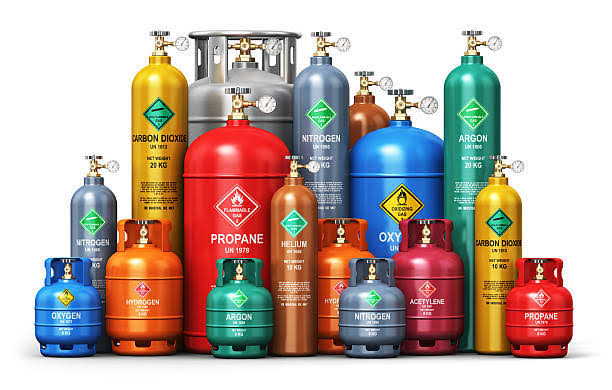
Gas consumers are bracing for challenging times ahead as industry insiders suggest that prices are poised to rise in the coming week. Olatunbosun Oladapo, President of the Nigerian Association of Liquefied Petroleum Gas Marketers, has indicated that a range of factors including escalating international prices, elevated tax rates, vessel expenses, foreign exchange scarcity, and currency devaluation are contributing to this impending price hike.
Oladapo noted, “Starting next week, due to the surge in international prices and the increased costs of vessels and taxes, consumers should expect higher gas prices.” He further highlighted the decline in purchasing power, affecting not only consumers but also intermediaries and retailers who are grappling with decreased business activity.
The situation is lamentable, Oladapo stressed, as Nigerian consumers face mounting challenges in affording gas. Strained budgets have compelled many to resort to traditional alternatives like firewood, charcoal, and sawdust for cooking. The need for government intervention was emphasized, with Oladapo urging relief measures such as reduced taxes, levies, and profit-oriented taxation instead of taxing products directly. He also called on local marketers to adopt consumer-friendly pricing considering the prevailing economic difficulties.
These concerns come amidst indications that vessel scarcity in the international market is anticipated to drive up local prices of Liquified Natural Gas, commonly known as cooking gas, in the months ahead. Rising charter rates due to the winter demand for heating fuel are contributing to this scenario.
As of August 1, 2023, charter rates skyrocketed to $284,750 per day for November and $206,750/day for October, a considerable increase from the previous rate of $70,500/day. This trend is attributed to traders using vessels for storage in anticipation of higher winter prices. The consequential higher shipping rates and transportation costs are likely to translate to increased prices for buyers across regions.
It is noteworthy that Nigerian LPG prices are intricately linked to international benchmarks and are subject to market dynamics. Factors such as fluctuations in international prices and currency devaluation directly impact local prices, a situation further exacerbated by the devaluation of the Nigerian naira. With the current exchange rate at N749.62 per dollar, consumers are experiencing the impact of this devaluation.
The price shifts have been evident in recent months, with LPG prices witnessing a drop in June followed by an increase due to currency devaluation. The price volatility is also captured in statistics from the U.S. Energy Information Administration and the National Bureau of Statistics.
Consumers, once beneficiaries of lower prices, are now grappling with the prospect of paying more for a crucial commodity. As the gas market navigates these challenges, both consumers and industry players are left hoping for some relief in the form of government intervention and measures to stabilize the market.

